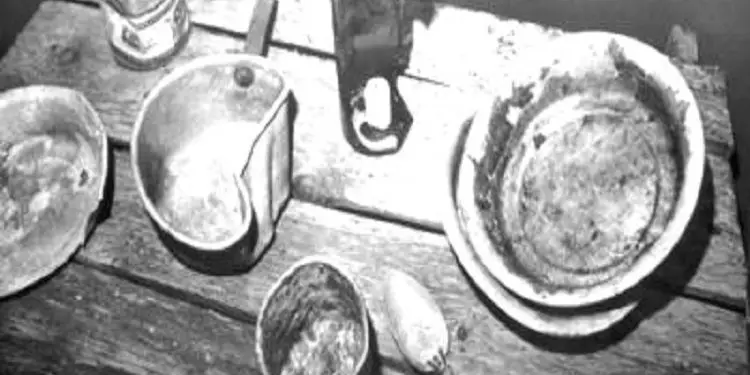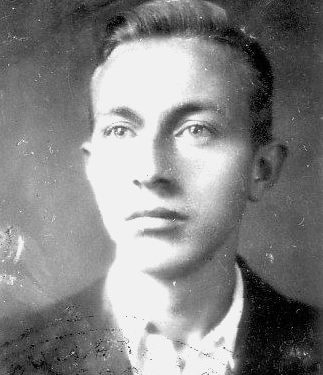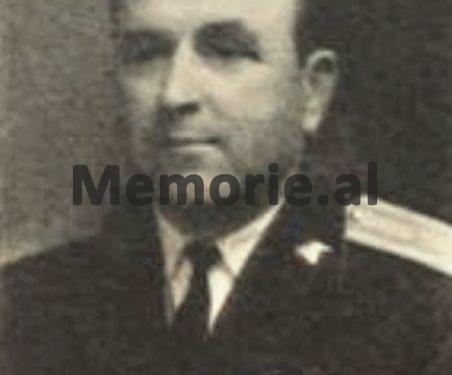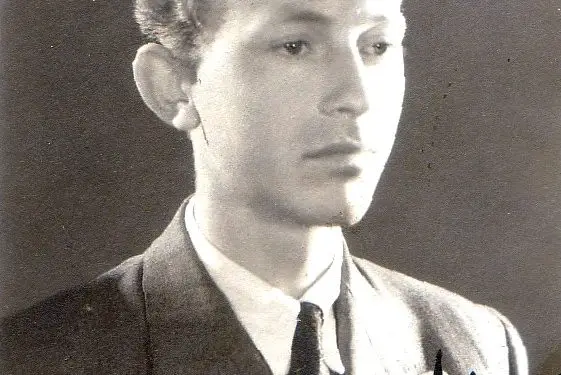By Uran Kalakulla
Part Thirteen
Nazism and Communism
Memorie.al / Nazism lasted 12 years, while Stalinism lasted 2 times longer. In addition to many common characteristics, there are many differences between them. The hypocrisy and demagogy of Stalinism was of a more subtle nature, which was not based on a program that was openly barbaric, like Hitler’s, but on a socialist, progressive, scientific and popular ideology, in the eyes of the workers; an ideology that was like a convenient and comfortable curtain to lie to the working class, to lull the sharpness of intellectuals and rivals in the struggle for power.
One of the consequences of this peculiarity of Stalinism is that the entire Soviet people, its best, most capable, hardworking and honest representatives, suffered the most terrible blow. At least 10-15 million Soviets lost their lives in the torture chambers of the KGB, martyred or executed, as well as in the camps of the Gulag and others like them, camps where it was forbidden to correspond (in fact they were prototypes of the Nazi death camps); in the mines in the ice of Norilsk and Vorkuta, where people died from cold, from hunger, from crushing work in countless construction sites, in the exploitation of forests, in the opening of canals and during transportation in lead-lined wagons, or in the flooded barns of the death ships.
Continued from the previous issue
He was taller than Llambi, but he was also as thin as a corpse, with a face as shriveled as those dried plums. He had two small, round eyes like those of a bird; with a big nose, like a parrot’s beak. When I found myself in front of him and he invited me to sit down, it was the same ritual that I was already familiar with: I shouldn’t tell anyone what we were going to talk about with him, because the investigators I had before him had not been accurate, lawyers, and that he was the only one like that, with a university degree, with a diploma. But when I saw his writing, it was worse than Llambi’s, even with lots of missing letters, not to mention the spelling. Later, when I told a friend of his who came later, when I told him that Vangjeli introduced himself to me as a lawyer, he laughed out loud and told me that; “Vangjelka, she didn’t even have a seven-year-old left,” worse than the captors!
We didn’t last long with Vangieli. The work had reached the point (it had become so exaggerated) that none of the seven of us should have escaped; neither from the bullet nor from the rope. So, it was more profitable for me to have the truth come out in the open than all that legend that had been built up with fantasies and false glories. Apparently, this work of ours had been exaggerated so much (even by the Sigurimi itself, if not by any of us), that when I was released from prison, after my life was pardoned, even those I found there, especially those from the “youth room”, told me that we were not seven, but seventy or seven hundred and that we had raised the flag without a star, I was in the middle of Shijak, so much so that on the one hand I was left with my mouth open and, on the other hand, I laughed out loud.
The third and last investigator of this time was again a captain, but now the second; also from Korça. Their name was Vaskë Panariti. But, unlike the first two, he was indeed red-haired, but young (about thirty years old) and with an athletic physique. I can hardly find fault with this man, who, moreover, seemed to have a calm and even charming face. It was a wonder how he had entered the ranks of the Sigurimi investigators?! In many ways, it seemed to me that he had nothing in common with his previous colleagues, of whom God knows how many there had been: ten, twelve or…?!
Vaska told me that he was a lawyer, that he had indeed graduated from the Faculty of Law, that he had once worked as an expert in the Prosecutor’s Office, then he had been transferred, against his will, to the organs of Internal Affairs and, right away, as an investigator of the Ministry’s Security. I noticed that, when he pronounced the name of the “sharp weapon of the Dictatorship of the Proletariat”, he seemed to curl his lip in irony, or to escape a grimace of contempt. Was it possible that some kind of incipient “dissident” had entered those ranks, which he was also a part of?! It was clear to me that the bloated edifice of the Party and the Government, as if it had begun to crack, had taken hold of its heart!
Let’s not forget that the break with the Soviet Union had been officially announced for months and was showing the first signs of disappointment and dissatisfaction. The relative prosperity of the Khrushchev era, as far as this could be understood in the communist system, was over and the stench of crisis, not only political and moral, but also economic, was increasingly felt. Was this crisis also in Vaska’s conscience?
I had noticed that Vaska never swore an oath for the party, but only for the honor of the family. One day, he even went so far as to say that; he might not even be a party member at all! But this didn’t surprise me that much, because I knew that to be in the Security Service, it wasn’t necessary to be a party member. The Security Service’s membership even meant having a much higher coefficient than the parties. But Vaska, as I investigated him thoroughly, not only didn’t seem like a bad person, prone to evil, but he seemed to me somewhat like a babaja.
I didn’t hold any trial with Vaska, although he often took me out of the dungeon to the investigator’s office, to one of the offices that wasn’t his, because there wasn’t one. He would take me, for example, to the office of Ilia Bodec, a wild boar, or to that of Dhori Shkodra, with whom, officially, I had no business at all. But, when they happened to meet me in the hallway, they would look at me with the eyes of a rabid wolf. And these people, especially Dhori, have become, for years, lawyers; who defend defendants and reap the rewards! Come on, Albanian democracy, come on! But let’s get back to Vaska.
In fact, the investigation for us was already over. We had been dealing with him for a year. Apparently, that’s why Vaska didn’t keep minutes. He had free conversations with me, even about the group’s problems, but about cultural and literary topics. For example, I remember that once he asked me if the thesis according to which Shakespeare did not exist as a person at all, but only as a fiction, as a pseudonym, was not stupid?! And when I answered him that such a thesis was not at all thrown into the air, but to some extent proven, he was surprised. Another time he asked me which Albanian poet was the best. Of course, I didn’t mention Fishta, because I hadn’t played around, but I mentioned Naim, especially in “Summer Flowers”.
I mentioned Mjeda, Migjen and Lasgush Poradeci.
– “What about Çajupi”? – he asked me.
– “Çajupi is a patriot and is among the first to have written with realism about the shortcomings of Albanian society of his time and, why not, even after him. But, Çajupi is not at the top of Albanian poetry”. One day Vaska completely surprised me, after he created conviction and a certain trust in me. Perhaps, even a certain consideration, if not respect.
– “I am surprised, how a cultured man like you, has ended up in prison”!
I smiled at his naivety and dared, finally, to paraphrase an expression of Leo Tolstoy, which I had encountered in one of his most famous works: “When violence and injustice arise in the state system, the place of honest people, was prison”! And Vaska opened his mouth from the great surprise that seized him in those moments. But the beauty came at the end, when one day he suddenly said: – “Do you know that you were not at all wrong? You just got it wrong at the time”!
It was I who was left almost speechless, in astonishment. Many, reading these pages, where I speak generally positively about this State Security investigator, will surely say to themselves: – “Wow, are you crazy? Has there ever been a good security guard”? Yes, indeed, there has never been and never can be a good security guard. But, alas, I am starting here from the principle that says: “Between two evils, choose the lesser of two evils”! Then, there is another reasoning, which is based on an aphorism known to many people: “It is not the work that makes the man, but the man who does the work”, which, in other words, without changing its meaning at all, means: The same work, no two people, never perform the same, not only due to their professional skills, but also due to their different spirit.
Many of our fellow sufferers can testify quite well and fairly that in a prison or prison camp, between a camp commander or a policeman and another, although they were assigned to perform the same task, one would leave a nostril free to get air, and the other would take a breath, completely.
Who can remember, for example, in the Rubik camp (years ‘64-‘66), Captain Nasi or Hasan (the old man in Elbasan), I believe it gives me the right to say that they were among the most gentle captains who often turned their heads back, as if they had not seen anything with their own eyes, if a prisoner violated the regulations. Likewise, many can remember (for the time of my imprisonment, or before or after), such ugly names as: Captain Xhako Mihaj from the time of Hazbi Lamçe, Captain Haxhi Xibraku from Camp 307 in Rubik, Asllan Uka from Burrel prison and so on. Or the commander of Camp 303 during the time of my imprisonment, Lieutenant Colonel Hysen Kapllani, who strictly adhered to the written regulations, on the one hand, and such commanders as Bajram Korvafaj and his friends.
Duality of personality
The phenomenon that I am calling “duality of personality” exists in man throughout his life, if consciousness is formed, as I think, from its two main components: the rational and the emotional being. In Albanian: reason and feeling. The first creates philosophy, science, while the second, art. Yes, can these two components of the human being be at the same time equivalent in an individual, at the highest level of their development?
I believe that, no. Here is the basic reason, in my opinion, that divides people who create great cultural values, into scholars and artists. The opposite rarely happens, that is, when an individual is great at the same time, both as a scholar and as an artist. I, for myself, know of few such cases where these qualities have reached the highest level, that of genius. A Leonardo da Vinci, a little like him!
In ordinary people, these components can be equalized, because they are like the two cotyledons of a grain of wheat or bean, which sit close, adjacent to each other and nourish each other. Thus, in the ordinary individual, to some extent, there is a balance (like the size of these two cotyledons). Therefore, in general, it is said that the more a person reasons, the more he feels. So, there is no normal person on the face of the earth, without these two qualities. What about in prison, in the forced and long, almost endless solitude of the cell?! These two wings of the human being, not only survive in this darkness of life, but, on the contrary, as they grow further, develop and mobilize so much that the poor man, locked up (like an animal), in the iron cage, risks becoming even more furious, that is, approaching the level of madness.
Because, the human mind, with all its absolute superiority, to any super modern electronic machine, also has, in its protein plasticity, a limit, beyond which it loses its stability and approaches madness. The Albanian language, with a great and very penetrating wisdom, as if it had researched these extreme cases of life, has found two words that are very similar to each other, which differ from each other only by a tiny prefix, a letter: wisdom, madness. The first – mind, the second – denial of the mind. Isolation in a cell was one of the most inhuman tortures that the devilish mind of the inquisitors has invented throughout history. The communist security borrowed it from the dark centuries of the Middle Ages.
Claustrophobia (fear of isolation), in a closed and narrow environment, lack of sufficient air, lack of light, food, water, the possibility of performing unavoidable physiological needs, dirt, constant silence or the inevitable hearing of the terrible animalistic screams of the crazy neighbor who screams into the sky, because the police are brutally beating him, annoyance and disgust from the rats and mice that suddenly visit you day and night (especially when you were handcuffed), not to eat the remaining piece of bread, but your ears and nose (when you are tied up and, as soon as you take a little nap from the fatigue and great insomnia you have suffered), the red eye of the police dog at the window of the locked and locked door, dirt, stripping and tearing of the body’s clothes, the winter frost and the suffocation of the summer heat impatient (when the terrace of the dungeon becomes like a sack from the scorching July sun), some distant voice of a woman or a child, reminding you of your family, the policeman’s curses and threats, the annoying cockroaches that have an “agreement” with the rats in the cell,… what else can I say about “dungeon life”?
And on top of all this, the monstrous accusation of the investigator, which you had never even dreamed of, and your further fate, between a miserable life in prison or, appearing before the firing squad or the gallows rope, are they not enough? The communist security forces were masters of inflicting misery on the poor man, the unfortunate wretch. All this torture that lasted not days, weeks and months, but sometimes even years! This is where the madness of the prison, or more precisely, of the cell, is due!
In the deep solitude of the cell, if a person has a strong, stable nervous system and especially an unbroken will to resist until death, he cannot, however, escape what I call here “dual personality.” Thus, willy-nilly, in a completely natural way, the unfortunate inhabitant of the cell becomes at once object and subject, that is, he divides himself in two, creating two beings at once, subjects of an inevitable dialogue, between two characters, as on a theater stage: one, for example, the investigator, the other the defendant; one the defendant, the other the witness for the prosecution; one the prosecutor, or judge, the other the accused; one in charge of the firing squad, and the other the candidate to be shot, who has not yet suffered the hail of bullets on his body…!
But it could also happen differently, for a problem of a different nature: if I were to return once again to free life, remembering an unfortunate incident, in a quarrel with the director of labor, or the head of education, would I have been able to endure his insult or would I have said so and so to him? In a word, you create in your mind a dramatic scene with a dialogue, when you are both the director, but also the insulted employee. This “internal”, “voiceless” conversation is very well known in psychology. Isn’t it called “ventriloquism” (literally: belly talk), that is, talking to oneself?
Is such a phenomenon inevitable in the solitude of a prison, a cell? Yes. It is inevitable! And this is a torture in itself, because it causes great fatigue in the mind and soul, to the point of reaching the last limits of endurance. Dostoevsky, this brilliant writer of human suffering, has wonderfully treated this typical phenomenon of duality, let alone personality, especially in his novel “White Nights”. The Dreamer (the dreamer) is the prototype of the phenomenon of duality of personality. This character is a timid, poor, miserable man, dulled by the contempt of society, a man insulted and isolated from this society.
He cannot realize himself in an environment hostile to him – but he is a man, he has his own personality, he has sensitivity, he has aspirations, he wants to live, even if it is against his will. And since in the reality that surrounds him this desire of his cannot be realized, he realizes his being only in his dreams. That is why he is called the “dreamer”. On one of the white nights of St. Petersburg, locked as he is in the miserable and cold attic room, he creates a fictitious life with his fantasy overdeveloped by worry: one day he is a handsome prince, with all the good things in the world, and then beautiful women come around him insistently, each of them trying to seduce him into erotic play with such great insistence that the poor “prince”, who has never known love in real life, goes from one to the next, not knowing whom to please first and especially with whom to consume his inevitable erotic desire.
The next night he makes himself a kind of brave and heroic knight, who has taken it upon himself to correct the injustices of the world, protecting orphans and the unfortunate from the flooding and oppressive storm of the capadains and tyrannical rulers. And so on. This is exactly what happens to the lonely prisoner in the prison cell. This is what happened to me too. I created lyrical scenes and situations, with fantasy almost exactly like Dostoevsky’s “dreamer”: family scenes, where I endlessly pampered my baby son to the point of being spoiled, where I fulfilled his every need and whim, where I bought my wife the most beautiful clothes and talked to both of them, as if I had them by my side, of course in a good, comfortable house, with all the necessary modern amenities, without a headache about the money I spent like river water, not on myself, but on the loved ones of my heart.
Another day I dreamed that my friends and I had not been arrested, but had contributed greatly to the overthrow of the communist regime and were also trying to build an excellent welfare of our country and people. Once I dreamed that I was studying at one of the great universities of the world, which had been the dream of my youth, such as Heidelberg, the Sorbonne, Harvard, where I successfully defended my graduation thesis, in front of professors with white beards reaching down to my waist. Another time, as if I was holding a conference on Fishta or Prenushi, in a large hall, fiercely attacking their punishment by the communist regime and, highlighting their values, debating, of course, with determination, with my literary and political opponents. Another time I created the scene of a historical novel, taking over even the speech of the characters; then, my debate with the prosecutor or the president of the court, for our group! Memorie.al
















